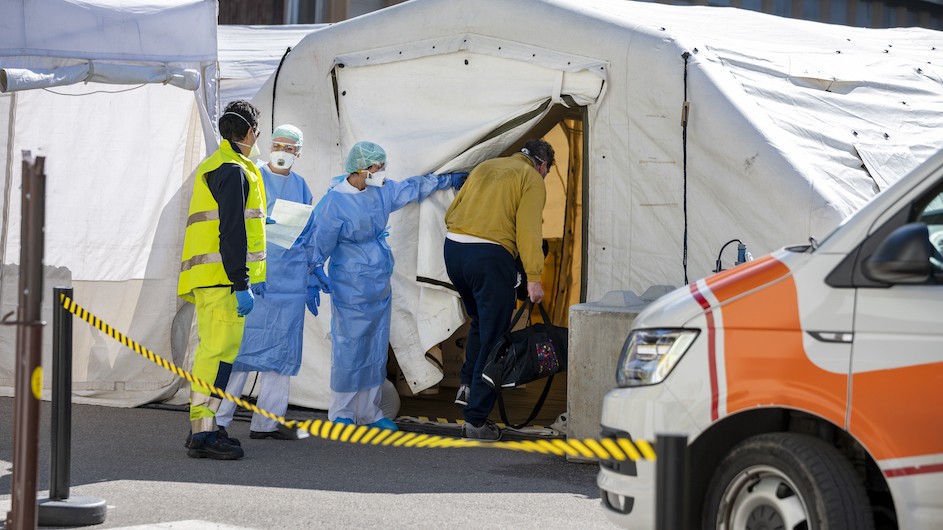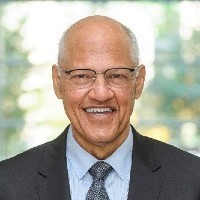To Get Pandemic Response Right We Must Get our Politics Right
The COVID-19 pandemic has revealed how some strong, wealthy democracies, like the United States, struggled to manage the public health crisis.

Pandemic response tends to be a top-down technocratic affair. Responsible decision-makers mobilize the best available science and engineering knowledge to implement social, public health, and clinical interventions on a scale that is commensurate with what it takes to manage, control, and possibly eliminate the circulation of infectious agents. But there is, as we have learned, a caveat: for this approach to work, consent and active cooperation of the people is required.
It is possible in authoritarian states to herd, cajole, and bludgeon people into submission because they lack constitutional rights protection, an independent judiciary (upholding due process and the rule of law), and a free press to report on transgressions. In organized autocracies like the People's Republic of China, which has a well-oiled chain of command by way of the Communist Party, disease outbreaks can be efficiently contained, in contrast to poorly organized autocracies like Venezuela, where chaos fuels rapid spread.
But autocratic efficiency comes at a considerable cost to dignity, freedom, and rights.
"On the State of American Democracy" with Jeh Johnson on 10/14
In democracies, our preferred way of arranging our political lives, the people must be persuaded, educated, and beseeched to adhere to public health norms by appealing to the common good. In many societies, as we have seen, people have given their consent to temporarily suspend some of their freedoms for the common good, but states must be consistently effective in curtailing spread, particularly as new variants arise.
Canada, Denmark, Germany, and New Zealand are good examples of democracies that during the COVID-19 pandemic effectively intervened on a national scale. Contrast their performance with Brazil, Ethiopia, India, and the United States–all federations–that have struggled to be effective. Ethiopia has the additional challenge of a devastating internal war. The United States has yet to confront the anachronistic, but enduring, belief in limited government.
The COVID-19 pandemic revealed an additional critical factor that none of the various risk indices recognized as important prior to the outbreak and it is this: it is one thing to have public health capacity, quite another to translate capacity into capability. The United States, for example, has high levels of refined and sophisticated capacity in the Centers for Disease Control and Prevention, but under Donald Trump there was a profound failure to mobilize its resources, technology, and expertise. Capacity is about assets, and capability is about mobilizing those assets and putting them to work.
How does that happen? It is about leadership, no question. It is also about politics. Politics are nothing but the rules, processes, and adrenalin by which the resources of a country are distributed and applied. In a pandemic, resources should go where the risk to health and life is greatest, and not to who happens to be the best organized, or most influential, or vectored along party lines. An epidemic is an existential threat to all human beings living in a particular territory and it is in the national interest to defend and protect the entire country and all its people. A pandemic is an existential threat to humanity itself and multilateral institutions should defend and protect our species.
Although our failures to manage pandemics are largely economic, social, and political, limited resources are going into research to identify which barriers should be lowered and what incentives to be put in place for behavior to conform to pandemic health norms. No parent wants to see their children die when there is a vaccine available. No adult wants to have a life cut short when it doesn’t have to be that way. Except for the so-called anti-vaxxers, a small minority, those who are not embarrassed to display their private discordance (some say lunacy) in public, most people who hesitate simply yearn for more information and greater assurance from those they love and respect that medical therapies are safe and effective.
We do not therefore have a science, or medical, or public health problem; we have a social, economic, and political one. Both of us have researched, taught, and one of us served in government (South Africa) long enough to know that to get pandemic response right we need to get our politics right. In the end, pandemic response is not what an elevated group of experts do to people, but how people own and direct their behavior with the support of their leaders and political institutions.

Wilmot G. James, a former South African Member of Parliament, is a senior research scholar at the Institute for Social and Economic Research and Policy (ISERP). His current research interests are in global health security.
Charles V. Hamilton, the W. S. Sayre Professor Emeritus of Government and Political Science at Columbia University, contributed to this article.
This column is editorially independent of Columbia News.